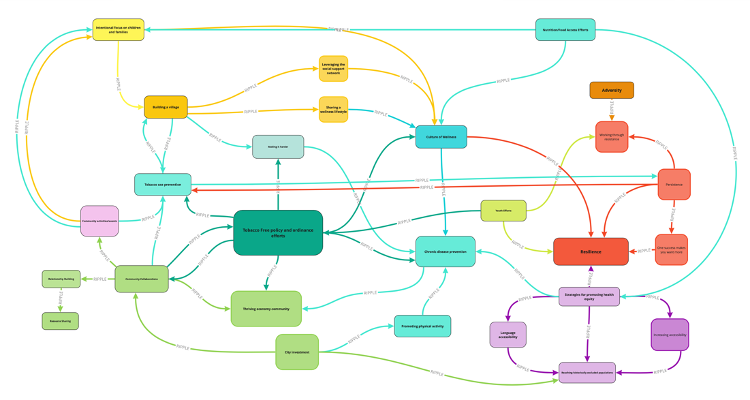The McNair Scholar experience at CPPR
The KU TRIO McNair Scholar Program aims to diversify the academic and research fields by working to increase the number of low-income, first-generation, and underrepresented students receiving graduate degrees. Named after Dr. Ronald E. McNair and inspired by his achievements, scholars in the program receive opportunities and resources to help them pursue their own undergraduate research project and a summer internship, and also receive support in navigating the expectations and systems of the academe.
For Alexis Tibbits, KU McNair Scholar 2021 and assistant researcher at CPPR, her identity as an academic researcher is inseparable from her interest and service to underrepresented populations, which comes with a family legacy. Shirley Hodison, Tibbits’s great-grandmother, was one of the plaintiffs in Brown v. Board of Education of Topeka, the Supreme Court case that ended racial segregation in U.S schools (following the decision from Mendez v. Westminster in 1947).
“Education has always been emphasized in my life because of my family’s history with Brown v. Board. It’s been instilled in me that the generations that came before me fought hard for education to be equitable and accessible, and I believe in reaching the ideal of those goals,” said Tibbits. “The McNair Scholars program supports disadvantaged students to succeed in their education and to have ambitions for their education. I find it motivating knowing that I have support from the program to reach my goals.”
One of Tibbits’s goals was to gain more experience in how to effectively do research with an equity lens, and her time at CPPR has given her the time to gain experience in research methodologies and to learn new research tools. With her previous experience working in a direct service organization, Tibbets has been a critical asset for many of CPPR projects, which includes her evaluative work on the Children’s Initiatives Fund Accountability Process with Associate Researcher Senior Owen Cox and Ripple Effects Mapping with Associate Researcher Stef Sloan.
“It’s really important to be able to gear an evaluation to the target population that you’re working with while also recognizing you really want to make sure that those questions fill the need of the evaluation, and Alexis brings a lot of her skills and talents to our work,” said Cox. “For the Children’s Initiatives Fund Accountability Process, she helped from the very beginning when we started laying out which research questions we wanted to include. She conducted interviews and helped in synthesizing what we found from each particular program. We’ve been able to utilize her previous experience and skill across various projects to really make them more successful.”
With the range of CPPR’s portfolio of research and its dedicated Applied Research Team, CPPR uses a comprehensive approach to its data and uses many evaluation tools that can best discern and share research insights. Ripple Effects Mapping is a visual participatory research and evaluation method used to capture program efforts, successes, and barriers that often remain unseen with more traditional program evaluation approaches. Ripple Effects Mapping also engages program participants, facilitators, grant administrators, and community partners in the evaluation process, which can promote a sense of empowerment and power-sharing.

“It’s not a method that a lot of people have a lot of experience with, and it’s not necessarily something that a student would have experience with unless they seek out someone who is knowledgeable,” said Sloan. “For my doctorate, I had to go pretty far out of my way to seek professionals who had experience with this kind of research.”
For Tibbits, who also has a background in visual arts, Ripple Effects Mapping was a new opportunity in how to approach research.
“Ripple Effects Mapping was a form of qualitative research I didn’t even know existed. And seeing the visualization and collaboration of data in real time with participants in addition to interviewing participants was really cool,” said Tibbits. “It was also interesting for me to see how to make data accessible and how to visualize the experiences of different people, and consider mapping as an opportunity to consider how people learn differently. It makes me question, ‘How can people better understand the impact of research or have a better time understanding data if there was a visual component? And how could I incorporate that in research that I do in the future?’”
Sloan, who has worked with previous McNair Scholars, said Tibbits possesses the foundational skills and a level of curiosity needed to pursue research.
“Alexis has a take-charge attitude to her own skill building. We have a lot of fast-paced work that we do here at CPPR, so it’s always a benefit to us to have people who have that attitude,” said Sloan. “She’s always willing to delve into whatever piece of the puzzle that needs to be addressed, and brings an equity focus and lens to her work. Historically excluded populations have been impacted by their lack of inclusion and opportunity in scholarship and research, and McNair Scholars are really working consciously to change that pathway for themselves and for others.”
KU is one of the 187 universities that offer McNair Programs. CPPR is honored to work with KU McNair Scholars and support their pursuit of graduate study with the expertise of our researchers and opportunities to gain experience in the field.
Learn more about Alexis Tibbits’s McNair Scholar experience at CPPR
To learn more about the McNair Scholars Program at KU, visit mcnair.ku.edu.